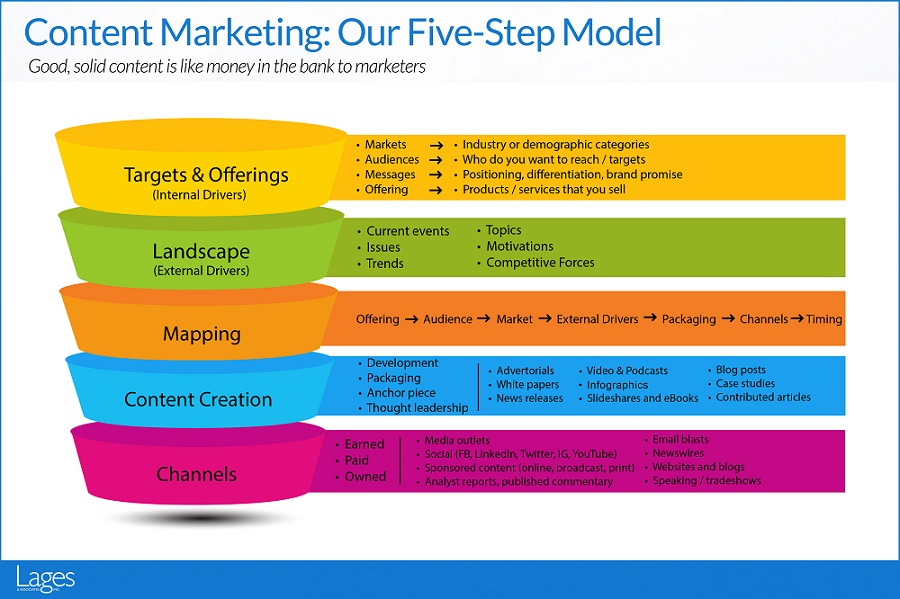Lages is a full-service public relations and marketing communications agency specializing in technology and all of its applications. Below is our recent interview with Beverly Lages, President of Lages & Associates:

Q: How would you describe Lages & Associates?
A: Since 1988, we have successfully orchestrated communications programs for companies in a range of high-tech segments including electronics, semiconductors, networking and wireless communications, biotech, security, storage, Internet, consumer devices and more.
We are a specialty agency that knows the tech industry inside and out. Simply put, we know how things work – from ecosystems, channels, and supply chains to R&D and bringing products to market. We know how chips are made, how software is beta tested and how new protocols affect development. Just for starters.
 Recommended: An Interview With Víctor Mayoral Vilches, CTO Of Alias Robotics
Recommended: An Interview With Víctor Mayoral Vilches, CTO Of Alias Robotics
Q: Why is now such an important time for tech companies to think about PR?
A: We continue to see the criteria for company success hinge on how well the company is able to articulate their vision, the problem they solve and why their team is best suited to address the issue at hand. While innovation is clearly essential and highly valued, for tech companies this is just the ticket for entry. The continued accelerated pace of innovation has created an even greater need to step-up messaging, storytelling and the crafting of a repeatable (and sharable) narrative. Channeling the company’s expertise, business model, and solutions to reach the right audiences where their story can resonate is where PR plays a critical role.
Visibility through thought leadership creates trust and credibility. Outside voices, members of the media, partners, customers, investors, and industry analysts, all lend strength to a message that resonates. The role of PR is to bring all of these voices to the forefront.
Branding also plays a key role here. In today’s world, branding comes down to your actions, the companies you associate with, and the products you deliver. PR is a key component in bringing all this forward to creating a meaningful, impactful brand.
Q: What about sales – can PR play a role to support customer acquisition?
A: Yes indeed. Besides building awareness, PR also creates content that can be leveraged in so many ways. For instance, the digital age is squarely upon us, and has fundamentally changed how business is done – particularly when it comes to the buyer’s journey. In fact, 47% of sales today are driven by buyers who have viewed 3-5 pieces of content before engaging. This ‘self-serve’ mindset, which sees potential customers conducting their own thorough research before raising their hands, has made visibility even more critical than ever before. Also, in order to have a successful lead nurturing program, you’ve got to have meaningful, relevant content. A recent report notes that nurtured leads make 47% larger purchases than non-nurtured leads. Now is the time to make content a priority.
Q: How else is PR adding value?
A: Raising capital is a reoccurring and necessary part of the mix for tech companies. Angel funding, VC infusion, IPOs, mergers/acquisitions and other financial events require a company to have visibility, communicate progress, and keep the drum beat of their potential top of mind. PR professionals are skilled in working with execs, founders and innovators to clearly communicate the value of the company and uplevel it to a broader story.
Recruiting talent is a lifeline to ensure growth, and PR plays a role here too by enabling the company to be found by ambitious candidates. Creating an attractive brand can be a magnet for the right new hires. Not to mention the fact that employees take pride when their company is making news.
Q: What are some of the core elements of a modern PR program?
A: Just as technology is ever-evolving, so is PR. For example – content marketing is a key part of PR today. With a wide variety of channels ranging from owned (i.e., website or social), to earned (media) and paid (sponsored), close attention needs to be given to the content you create.
It’s also important to understand the mechanics of getting your story out there. How the press operate, how to package your story, elements needed to build receptivity, timing and more.
Positioning your company as a thought leader spans many different constituencies. These include press, analysts, stakeholders and the public in general. It is key to understand the roles and motivations of these different constituents and how your story fits in.
At the end of day, one of the most important contributions PR can make to a company’s success is measured in the strength of the relationships it creates.
Q: What should innovators be sure to consider when selecting a PR firm?
A: First things first, it must be said that tech companies simply can’t afford to hire a generalist agency.
Tech PR is very specialized. Industry jargon will sound like gobbledygook to the layperson, but brings meaning to target audiences. In our field, you have to be able to nimbly translate concepts that can be very technical into higher level, easily digestible language. PR firms act as interpreters for innovators, engineers, developers and the like – so they better be able to speak your language and connect with your audiences.
I find that much of the success my team has secured for our clients is rooted in their innate curiosity. They are excellent researchers who approach things like a journalist would. We thrive on the fast-paced nature of tech PR, and in knowing companies, technologies, solutions and markets inside and out.
 Recommended: Robotics Startup Presso Creates The World’s First Robot That Can Clean, Disinfect, Press, And Dry Clothes, All In Less Than 5 Min.
Recommended: Robotics Startup Presso Creates The World’s First Robot That Can Clean, Disinfect, Press, And Dry Clothes, All In Less Than 5 Min.
Q: Anything else you would like to add?
A: To sum up why PR is essential for tech companies, I can point to 4 ways it has a significant impact:
1.Builds a positive brand that underscores the value of your company, your products or services.
2.Rallies the support of those outside the company to strengthen reputation, bring credibility and earn trust.
3.It influences your sales and growth.
4.It sets the level of talent you attract and sends a message to investors.

